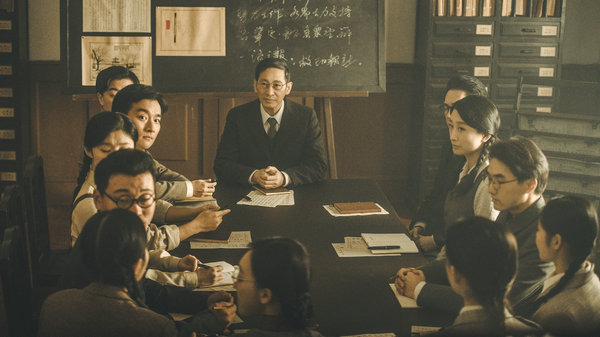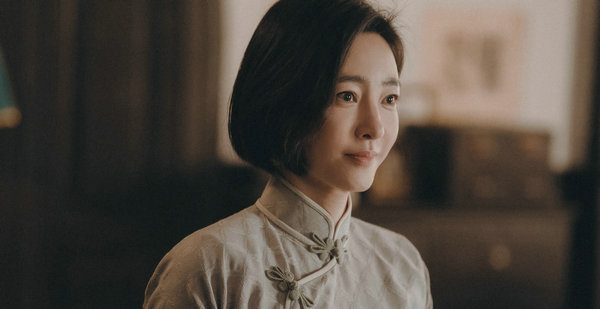

By turning its lens to the artists who wielded their pens in the Guangxi Zhuang autonomous region during the turbulent war years from 1938 to 1944, the series Zhen Di (The Stand) fills a historical gap by highlighting the power of cultural works in China's fight against Japanese invaders, according to critics at a symposium held in Beijing earlier this week.
Consisting of 32 episodes, the drama brings together a stellar cast, including actor Feng Shaofeng as playwright Xia Yan, veteran Wang Jinsong as renowned writer Guo Moruo, actor Li Chen as General Li Kenong, and actress Wang Likun as artist An'e, the wife of playwright Tian Han.

The production portrays more than 100 cultural and historical figures, among whom the most prominent are novelist Mao Dun, writer Ba Jin, and painters Feng Zikai and Xu Beihong.
Ma Jun, deputy head of the TV drama and documentary center of China Media Group, said that the drama skillfully balances the merits and flaws of each character, avoiding stereotypical heroism or overly idealized portrayals.
"Every role breathes with life, humanity, and conviction — together composing an era-defining symphony of cultural resistance on a battlefield without gunpowder smoke," Ma added.
Yan Conghua, the drama's chief executive producer, revealed that streaming platform statistics show that young viewers make up more than 50 percent of the audience, indicating that many of them see the historical figures as role models and draw spiritual strength from their stories.
A native of Huangshan in Anhui province, Yan said that during the research period before filming, he discovered that educator Tao Xingzhi was his fellow townsman. He also learned that Canadian surgeon Norman Bethune was persuaded by Tao to come to China and assist with the Communist Party's medical efforts.
Actor Wang Jinsong said he felt honored to portray Guo and highlight his contributions during the War of Resistance Against Japanese Aggression (1931-45).
"Guo united a range of cultural professionals — playwrights, poets, artists and journalists — bringing them together in Guilin under the Communist Party of China to fight the enemy through cultural efforts," the actor explained.